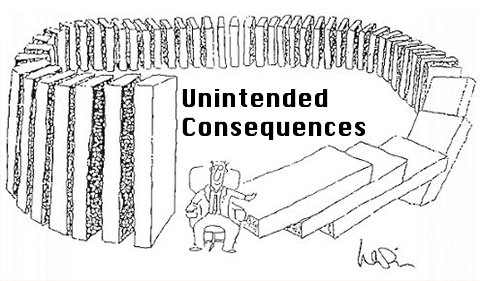http://www.patrickmckenna.com/blog
Page 1 2 3 4 5 6 7 8 9 10 Next >> of 95
Post #893 – August 25, 2021
Some Strategic Thought Provokers A few brief, pragmatic snippets to pop some ideas out of your intellectual toaster:
 • Fight Established Routines. • Fight Established Routines.
Some partners can be like those old spring-powered watches — they have to be shaken hard to get them going. • What’s Your Competitive Advantage? If you do include a testimonial, make sure that there is a REAL name attached. • Welcome New Voices. If you don’t think one of your younger professionals could have some tasty contributions to make to your Executive Committee, you are clearly suffering a bad case of truth decay! • Eliminate Barriers to Switching. Ask yourself: “What keeps this person or company from becoming our client tomorrow?” • Be A Creator of NEXT Practices. Simply adopting someone else’s best practice may not be your best practice after all! • What’s Your Skills-Building Strategy? The half-life of knowledge is decreasing at a furious rate. Read Article - HERE
Post #892 – August 18, 2021 Be ORIGINAL Rather Than Imitating Competitors Many view other competitors, their strategies, their performance and experience as the benchmark from which to set standards for their own firm. That kind of competitive comparison may makes sense, especially as your firm’s performance is often defined by what your peer firms are doing. Where this approach becomes an obstruction is when the logic behind what works for some other firm, why it works and what might work for you, is not assiduously examined and thereby results in firms engaging in nothing but mindless imitation. Consider these examples drawn from my observations and experiences: • You imitate the EFFECTS of success rather than the cause, • You believe and subsequently copy things you read and hear that other firms are SUPPOSEDLY doing. • You duplicate the most VISIBLE action you see competitors initiating. • You BLINDLY adopt the forms, practices or strategies someone brings along from another firm.
You are not going to get ahead by imitating what your competitors are doing – “I’ll have what she’s having,” as a diner in the movie Sleepless in Seattle said to her waitress while watching Meg Ryan fake an orgasm. When every firm chases the same strategies, they all slide inexorably into sameness and mediocrity. Read this Article
Post #891 – August 11, 2021
Be Dominant Somewhere Rather Than Mediocre Everywhere  From your firm’s perspective: is each practice truly profitable, is the practice worth committing further resources toward developing, or what would the downside be if we were not to provide these services? Indeed, could we somehow fine-tune or reposition this business unit so as to be regarded as the preeminent authorities in some new niche or selective area of client need? From your firm’s perspective: is each practice truly profitable, is the practice worth committing further resources toward developing, or what would the downside be if we were not to provide these services? Indeed, could we somehow fine-tune or reposition this business unit so as to be regarded as the preeminent authorities in some new niche or selective area of client need?
While many firms engage in some form of strategic planning, only a few really come to realize that having three to five truly strong practices is preferable to having a good number of mediocre practices that serve only to consume resources, dilute profits and diffuse strategic focus. Firms and their business units need to clearly articulate what their selective focus is. Imagine having as a compelling challenge and managing your firm consistent with a strategy that states: “We will have as integral to our firm, only those business units that are clearly number one, two, or three in every market we serve.” Read this Article
Post #890 – August 4, 2021
Unintended Consequences of Being Addicted to Commodity Work  One firm leader commented to me that while "most fans of efficiency are very strong on the left-brain – any innovation very much starts in the right hemisphere.” Thus, the “define, measure, analyze, improve, control" mind-set doesn't entirely gel with the fuzzy front-end of invention. When some new revenue generating idea starts germinating, you don't want to overanalyze it, which can happen in an efficiency obsessed cultural framework. One firm leader commented to me that while "most fans of efficiency are very strong on the left-brain – any innovation very much starts in the right hemisphere.” Thus, the “define, measure, analyze, improve, control" mind-set doesn't entirely gel with the fuzzy front-end of invention. When some new revenue generating idea starts germinating, you don't want to overanalyze it, which can happen in an efficiency obsessed cultural framework.
That said, one wonders whether this propensity to simply accept commodity work as a natural way of legal life is not indicative of an addiction.
Here are some examples: • We don’t pay as much attention to our overall Brand Image (Do we care that some work we do might actually demean our public profile?) • We reward partners for doing shit work (Are we over-rewarding some who have large billable hours?) • We don’t force proper delegation (Are we negating our promise to clients to have their work done at the proper level?) • We don’t focus on longer-term market innovation opportunities (Are we demoralizing those who have some ambition?) Being addicted to commoditized work is the result of strategy decay – and strategy decay is like cancer – it happens little by little and the longer you take to deal with it, the more deadly it becomes.
Read this Article
Post # 889 – July 28, 2021
Focusing on Efficiency and Commoditized Work Will Have You Seen as Just Another “Vendor”  I happened upon an article concerning a new Law Firm Profitability Survey, wherein the author “highlights the many projects that firms are working on to address profitability.” The article lists 16 different projects like timekeeping practices and inventory management, among the favored strategies. If one were to categorize these 16 into how many were internal versus external focused; and how many were operational versus strategic; you conclude that these firms were all obsessing over various internal cost efficiency tactics at the expense of strategic wealth creation – for example, launching a potentially lucrative new practice niche was NOT identified by even one of the firms surveyed! I happened upon an article concerning a new Law Firm Profitability Survey, wherein the author “highlights the many projects that firms are working on to address profitability.” The article lists 16 different projects like timekeeping practices and inventory management, among the favored strategies. If one were to categorize these 16 into how many were internal versus external focused; and how many were operational versus strategic; you conclude that these firms were all obsessing over various internal cost efficiency tactics at the expense of strategic wealth creation – for example, launching a potentially lucrative new practice niche was NOT identified by even one of the firms surveyed!
The very next piece on my pile was entitled, “Commoditized Work Can be a Gold Mine.” In this article, rather than treating commoditization as a negative, they attempted to advocate that “the profitability of commoditized work has never been more important.” Really? Meanwhile 47% of GCs report that the increasing volume of low value work has impacted morale with many saying: "Is that what I went to law school for?" Combining these two articles one might conclude the future of our legal profession seems to be focused on . . . “making better buggy whips.” Is that really what you want for your career and for your firm? Read this Article
Post #888- July 21, 2021
How Do I Get My Litigators to Focus on Client Industries  Question: “I have been reading your various article on the merits of attorneys having more of an industry focus and I’m intrigued. We have certainly become more cognizant of this topic as COVID impacted many of our client industries in ways that we would never have imagined. I manage a fairly large Litigation Department comprised of about 40 attorneys, fairly partner dominant, and spread out over five offices. Any ideas for how I might approach this with my colleagues and convince them to give re-organizing all or parts of our Department into smaller industry teams a try?” Question: “I have been reading your various article on the merits of attorneys having more of an industry focus and I’m intrigued. We have certainly become more cognizant of this topic as COVID impacted many of our client industries in ways that we would never have imagined. I manage a fairly large Litigation Department comprised of about 40 attorneys, fairly partner dominant, and spread out over five offices. Any ideas for how I might approach this with my colleagues and convince them to give re-organizing all or parts of our Department into smaller industry teams a try?”
Perhaps we might provide them with an experience that may allow them to explore some new practice options. Here is what you could do . . . Read this article - HERE
Post #887 – July 14, 2021
Claiming To Be Full Service Is An Exercise In Irrelevance  Too often your firm’s strategy, assuming that you have one, is focused on the wrong issues. Too often your firm’s strategy, assuming that you have one, is focused on the wrong issues.
Many keep asking, “How can we effectively compete with (that particular firm) at what they are doing in (some particular area)?” Firms are so intent on watching each other and imitating what each other do, that they fall victim to competitor inertia. The more your firm looks like everyone else and as any distinguishable differences between firms blur, competition leads to commoditization. Many firms attempt to be different but are not truly differentiated because they pursue forms of uniqueness that clients simply do not value. Some of the most prominent examples of this are firms that propagandize their: number of lawyers; reputation and years in business; growth in revenues; promise to assign the best people; commitment to superior client service; various (pay-to-play) “Best Lawyers” awards; devotion to producing results; etc. Sorry: these are ALL table stakes, not points of meaningful, to clients, differentiation. Read the article - HERE
Post #886 – July 2, 2021
Would You As Firm Leader Benefit From Having An Advisory Board? There is an old saying that goes, it can be lonely at the top — especially if you are a busy law firm leader trying to maintain a modicum of a personal practice while also charting a course for your firm’s future growth.  However, you don't always have to go it alone or rely on the intuition of only your fellow colleagues – some of whom may have their own personal agendas to advance or not have the kind of business experience that you need. A good number of other professional service firms, from accounting to consulting, have found success through having an external advisory board to counsel the firm’s leadership on various aspects of the business — everything from operations to planning for growth or enhancing client service. However, you don't always have to go it alone or rely on the intuition of only your fellow colleagues – some of whom may have their own personal agendas to advance or not have the kind of business experience that you need. A good number of other professional service firms, from accounting to consulting, have found success through having an external advisory board to counsel the firm’s leadership on various aspects of the business — everything from operations to planning for growth or enhancing client service.
Think about the last time you met with a group of business people and had an open discussion, sharing ideas and concerns. An Advisory Board is a formal version of this process. Unlike a one-time event, you might think of an Advisory Board as your own special leadership think tank. Participants can serve as your personal sounding board, a source of insights and expertise — and give you honest and candid advice. If properly constituted, your advisory board will be comprised of people with no axe to grind, and who want to listen and impart their knowledge. Read the article - HERE
Post #885 – July 2, 2021
Why Aren’t Law Firms Bringing In Outside Directors?
Half of the Big Four firms in the U.S. have non-executive directors. There’s growing sentiment that law firms should consider a similar approach. 
There’s no shortage of interest in the legal industry today about what the Big Four are looking to accomplish: particularly, whether they’re going to find a way to snatch substantial work from U.S. law firms–perhaps aided by the regulatory reform process that’s unfolding in a number of states.
But perhaps that interest should also extend to some of the organizational practices in place at Big Four firms. I’m going to spotlight one today, based on a recent LinkedIn post from Canadian law firm consultant Patrick McKenna. That’s bringing in independent directors from outside their organizations to sit on their boards.
Read This Article by Dan Packel from American Lawyer – HERE
Post # 884 – July 2, 2021
The Most Lucrative Growth is Industry Focused But Only If You Get Granular 
I was reading an interesting interview with Sandy Thomas who was just reelected for his third term as Global Managing Partner at Reed Smith. What struck me was when he was asked about the direction of his firm and his growth priorities, he responded that Reed Smith will concentrate what he calls its “talent, time and treasure” as the firm embarks on a new four-year plan. The focus will be on developing capabilities in five core industries: financial services; life sciences and health; energy and natural resources; transportation; and entertainment and media. The interviewer observed, “That’s a wide net -- but compared to some Big Law leaders who seem loathe to imply any scrap of business is less important, it’s practically a laser-like focus.” We all know intuitively that we need to have our firm grow but the subject of growth can be a tricky topic such that it becomes important to have an informed perspective on how to think about it. Growth creates healthy practices, strong firms, opens up opportunities, excites and attracts good lateral talent, and rewards partners. But do we really know how to achieve it? And I am not going to blow smoke at you here – law firms and lawyers do NOT understand the intricacies of Industries. Read This Article – HERE
Page 1 2 3 4 5 6 7 8 9 10 Next >> of 95
|


 Ashridge House
Ashridge House  11226 - 60 Street
11226 - 60 Street  Edmonton, Canada
Edmonton, Canada  T5W 3Y8
T5W 3Y8